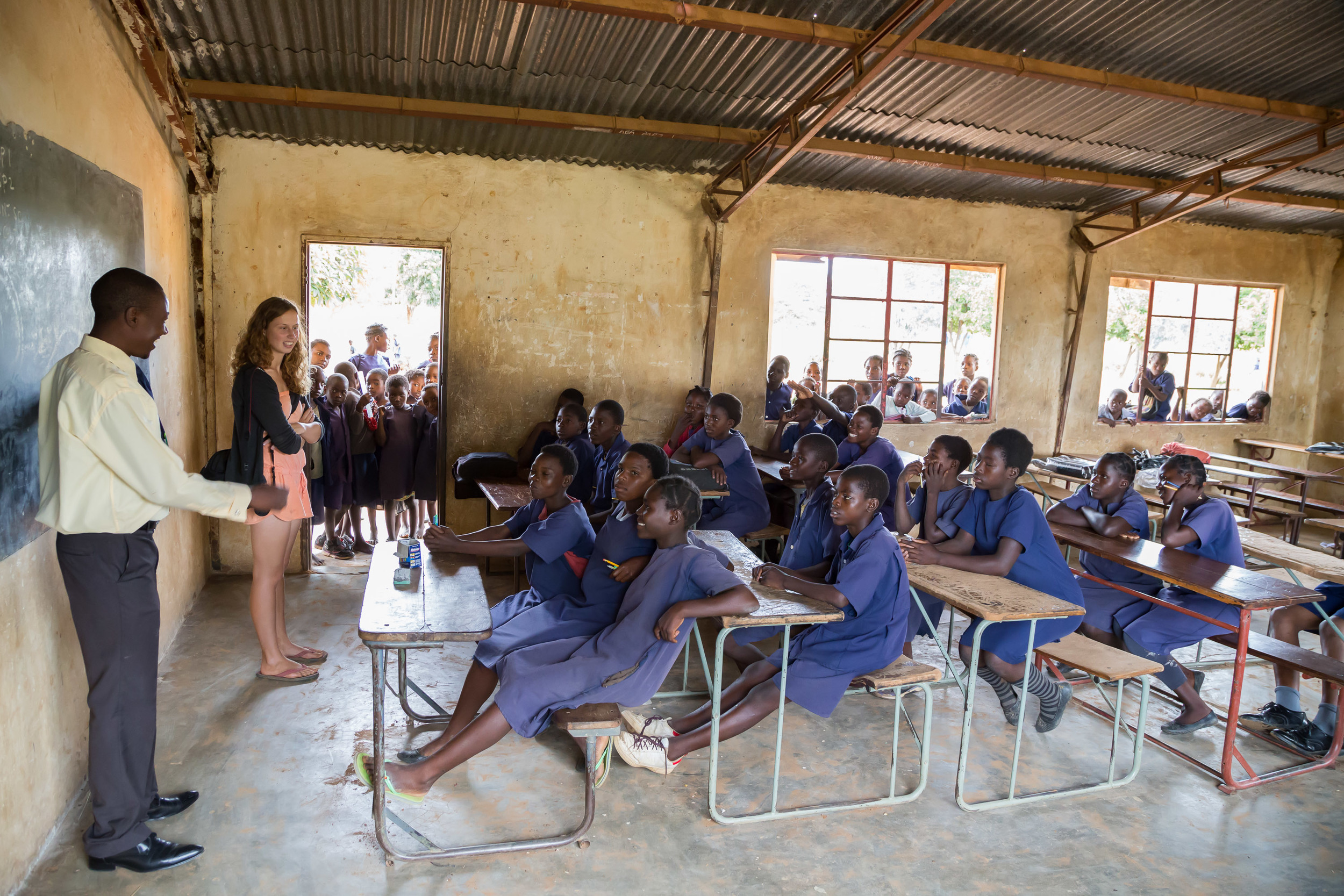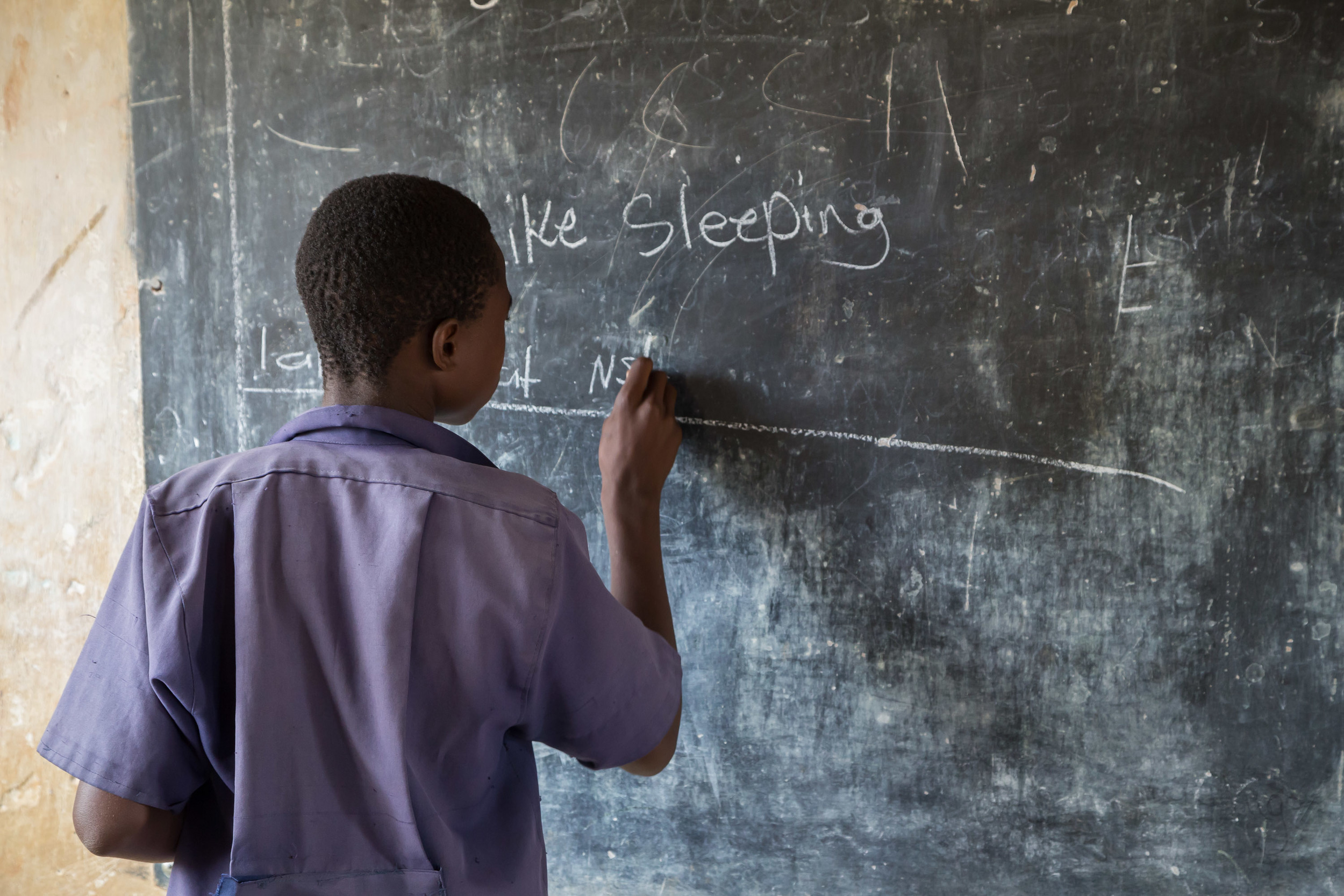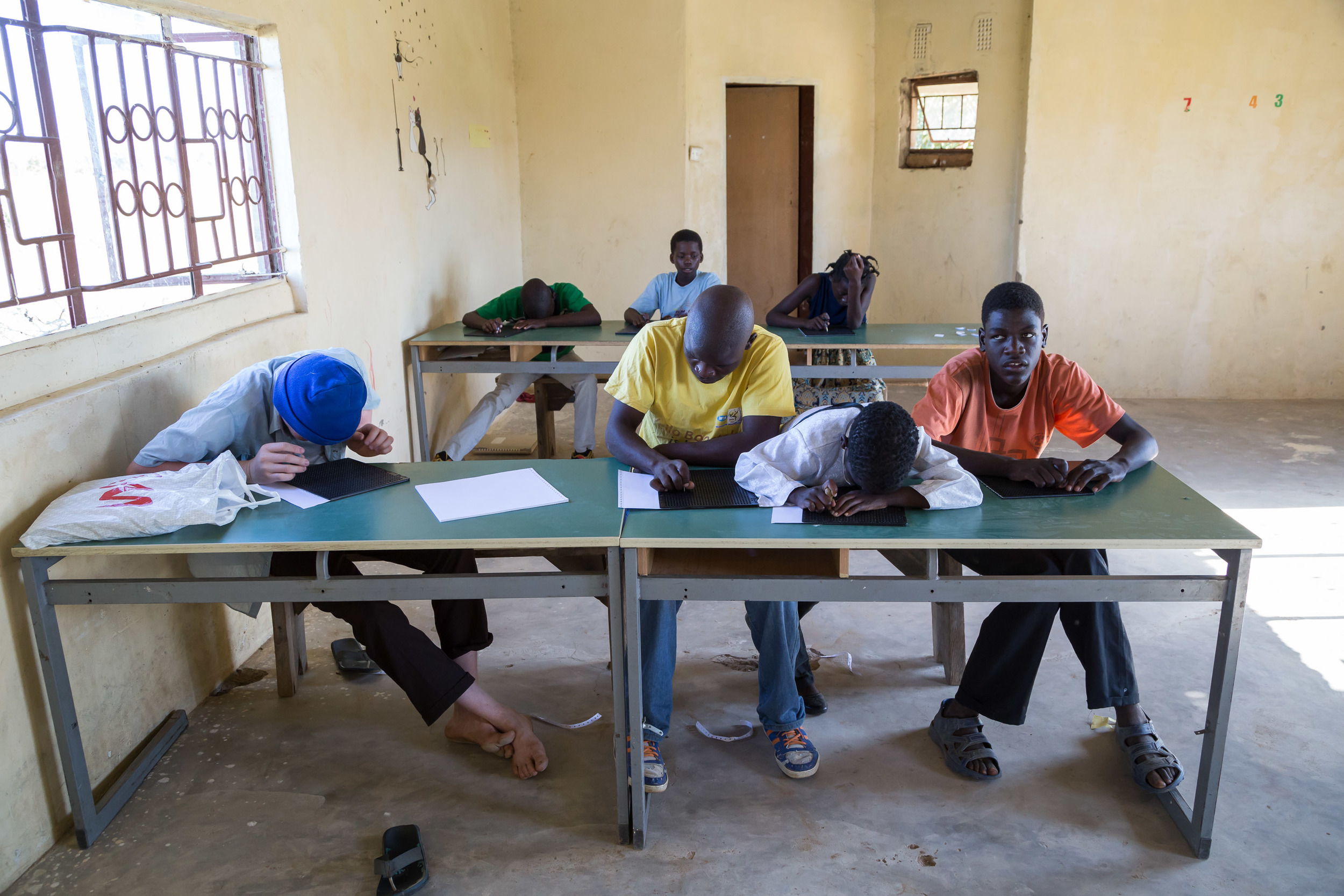Issue:
In 2014, only 1 out of 50 of Mr. Mweetwa’s 9th grade primary students advanced into secondary school due to subpar test scores or lack of finances. A majority of these students will never see a classroom again at the age of 13.
This is a common problem in Zambia’s rural communities. Schools in rural communities face a shortage of teachers, supplies, and classrooms. With a lack of teachers and resources, it is very common to see a single teacher teaching a class of 80 students with only one textbook. A majority of these students come from families where education is not valued; some parents even go so far as to pull their children out of school to help out at the farm.
"Why should I suffer and pursue this thing if no one in my family has gone to school?"
Interview with Mr. Fordson Mweetwa, Teacher
Growing up in a village in Choma, Zambia with no vehicles and shoes while drinking milk straight from the cow was the norm for Fordson Mweetwa. His father was absent in his life and his mother used to work at the post office. When she passed away, his grandparents continued to raise him to be the man he is today. Luckily for Mr. Mweetwa, his aunt was married to a doctor, and they saw potential in him based on his stellar grades in the classroom. They decided to take a chance on him and paid for his secondary school fees at Canisius Secondary School. Mr. Mweeta finished secondary school with remarkable grades, which allowed him to attend any university. However, his sponsors did not have sufficient funds to fund his university school fees, so he opted for a certificate in teaching. Today, he is a Grade 8/9 teacher at Munenga Primary School in Munenga Village, Zambia.
What are the biggest challenges?
"Lack of money is the number one problem. More money can mean more accommodation and more teachers. It will reduce the teacher-to-pupil ratio. Now you saw how big the classroom was…85 pupils per 1 teacher. But maybe when you go the city, you find 10 pupils per teacher.
All the problems we face will bring us back to finances. In order for this school to run well, we’re supposed to have 22 – 24 teachers, but we only have 12. If we had 24 teachers, the teacher-pupil ratio would be excellent, but every single is handling huge numbers of students.
There are no books. Many times, teachers will teach a class of 50 pupils with only 1 book. There are times when chalk becomes an issue because the school is running 0 Kwachas ($0). No books. At times, no chalk. No manila papers to use. They are not there. The teacher is the only one who knows the truth with the book. You will also find the book the teacher uses is for the pupil."



"As a a result, students have to take good notes, and you find pupils have a lot notes that they don’t even understand. That is the only route – to take good notes.
Also, you find the girls get married early. You also find these schools in these rural areas are surrounded by people who did not go to school, so they do not value education. There are some children who just stop and are not interested and their parents don’t care. It is a cycle that passes on from generation to generation. There are parents out there who tell their children that no one in their family has successfully gone to school, so this child thinks, “Why should I suffer and pursue this thing if no one in my family has gone to school?” So you see many of these children disappearing from school to do house chores or work on the farm.
But city schools have advantages because the kids are exposed. The parents in the cities also understand the importance of education, so they react to things very fast for the benefit of their children. It’s harder in the village…you have to gather these parents up and ask them for money that they do not have."
Paying for School?
"Because most students do not have money for education, sponsorships are the almost always the only way to get a higher education. But it’s very difficult… you ask the teachers and very few have been sponsored. Most of us (teachers) are just struggling to get a high paper (education). The only way for pupils to get sponsored is through the help of NGOs, but the field is just way too big. We have World Vision here but when you look at the sheer number of helpless children, you find only a few that can be sponsored.
Loans? Interest rates are very high. If you go for a loan, you have to deny yourself a lot of things. If you look at salaries, almost half of your salary will go towards salary for 5 years.
If you walk around, you see a lot of young men and women. What happens? They could not proceed after Grade 9 because maybe no sponsorship or they can see that the future is dim. Even if I pursue school, there is no one to take me to school, so they get discouraged."
City vs. Village Education?
"In the rural areas, there are only a few advantages. In a village, the teachers don’t pay accommodation but in the city, teachers must look for accommodation. However, the accommodations in villages are very poor; some of the old classrooms are turned into housing facilities. However, in cities, accommodation is abundant and cheap to find.
However, the facilities in the city are way better because they use computers and have electricity. City schools are also the first ones to catch the “goodies,” whenever NGOs have funds to donate, they always look first at the city schools. Children in the city are also more exposed than our children in the village. They will be exposed to the latest technology and what they see on television; the way they understand things is very different from our children. That gap is a battle. At one point, you want these children to meet but you find at this meeting place, the one that is “less exposed” feels inferior and disadvantaged.
You even find teachers in villages are behind their friends in the cities in terms of exposure. When it comes to knowing things, we are behind. Because there are places that are very typical and because of life where it has thrown you, you stop acquiring new things and just “sit with it in life,” so a teacher himself/herself becomes discouraged in life and can you really give the best for the child?
Good example…the government wants us to teach computers. In city schools, there are all these short courses about computers, and teachers are able to teach pupils while us here in the village, no one in the whole school knows how to operate a computer. So the government wants us to teach computers, but there is no accommodation here for another computer teacher. Also, people come here and complain that “life is hard” and very far from the city, so they prefer to stay in town. Who suffers? The students. "
Solution?
"It is my dream for these children to see how wide the world is. I just discovered that exposure matters a lot. My initial plan was to have two solar panels and place one panel in the classroom, so using the dish we can run the program with the children, and they have time to watch television. It will create motivation and drive. If I can find a way, I can be. You saw when you asked the children how many had seen a television, only a few raised their hands..."
I used to teach at a school in a city near Lusaka, Zambia where the children are very much exposed to the outside world and when you ask them a question, they excitedly refer to it, “Oh I saw that in Japan! I saw that in the U.S.!” So technology plays an important role to these children and exposes them to the outside world. So when you are teaching in class, even the children can challenge the teacher, “Oh I don’t think that’s the way it works, when I saw it on TV…” So this child knows something so let me advance and teach this part the child doesn’t know. But here in the village, a child cannot even ask a question because they don’t know anything....
So I think technology and exposure are so important!"
Final Thoughts
While universal primary education has been a focal point for the Zambian government, most students in rural Zambia will never be able to continue their education post-primary school. Why? The biggest problem seems to be lack of classroom space with a teacher-pupil ratio of 1-to-50. Add on the lack of resources, supplies, and funding, and you can see why students have no hope for education.
Mr. Mweetwa has seen the transformative effects of technology on children. It has inspired children to ask questions and exposed them to a vast world outside of farming. In essence, it has effectively made learning fun. When observing children at Munenga Primary, you could feel the lackluster of children when presented with books but when presented with an iPhone or a computer...their eyes immediately lit up.
While government support and funding are out of our control, what NGOs and developed countries can do is provide support in terms of technology and expertise. I'm just thinking of how we cycle through our iPhones every year or two...how many unused and workable devices there must be in parts of the world...


